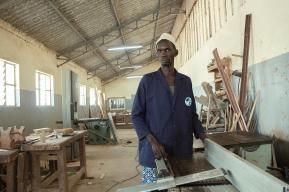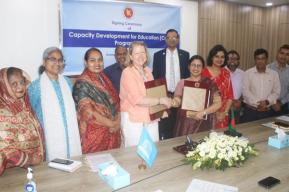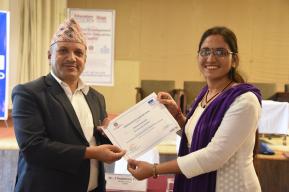
Capacity development for education
The Capacity Development for Education (CapED) programme is a global initiative, active since 2003, with a focus on 20 least developed countries. By leveraging UNESCO’s technical expertise in coordination with partners, the initiative provides countries with the capacities they need to achieve national education priorities that reflect internationally agreed goals to ensure inclusive and equitable quality education for all. It also supports countries in the development of new robust education policies, more gender-sensitive curricula, high quality education staff, and better access to vocational training. The long-term impact of CapED’s contribution is starting to emerge: From more learners enrolling in technical and vocational education and training in Madagascar and South Sudan, to significant rises in DRC’s education budget. From girls performing better in science, technology, engineering and math in Mali, to more children under five enrolling in early childhood education in Lao PDR and a lower pupil/teacher ratio in Uganda.
Key facts
Stories











